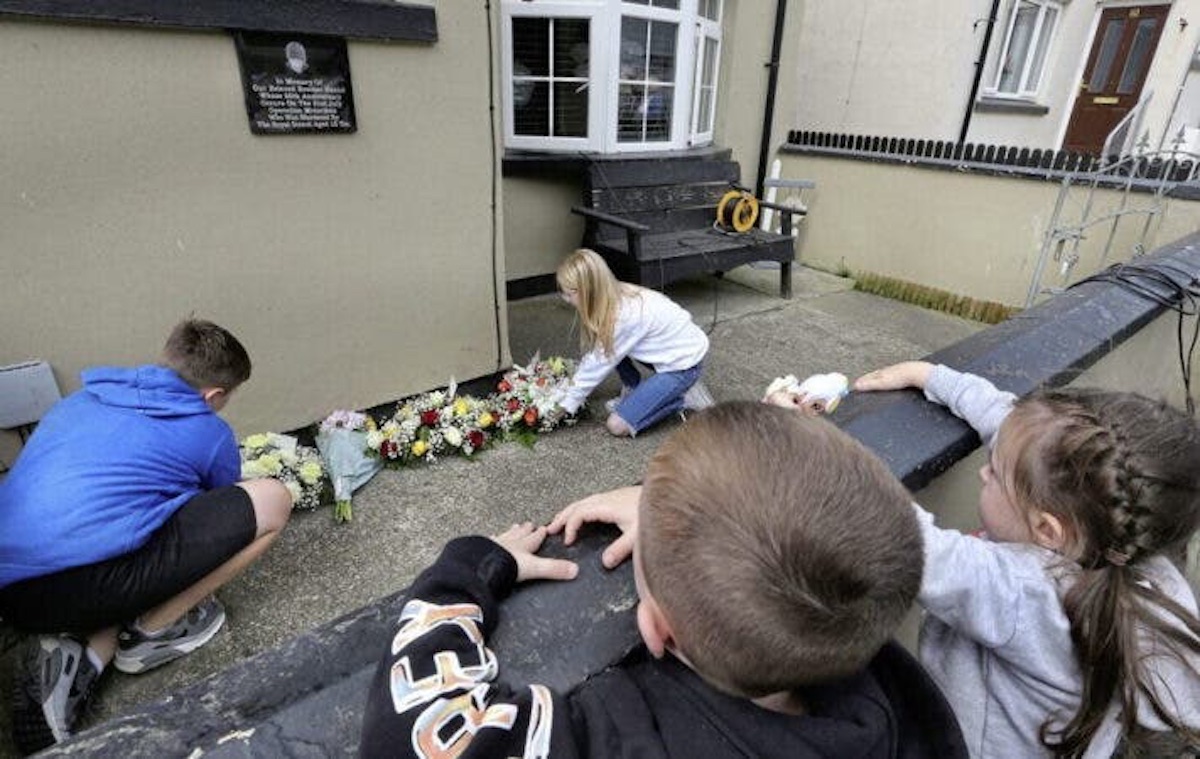
A plaque has been unveiled at the spot where a Derry teenager was shot dead by the British Army fifty years ago.
Daniel Hegarty was just 15-years-old when he was gunned down at Creggan Heights in the early hours of July 31, 1972.
Daniel was shot twice in the head at point-blank range with a machine gun during the opening hours of Operation Motorman when the British Army re-took the “no-go” areas of ‘Free Derry’.
Daniel’s cousin, Christopher, was injured in the incident.
The British army then spread a lie that Daniel had been carrying a nail bomb. An inquest in 2011 found that he had not been posing a threat when shot.
On Sunday afternoon last, a commemorative plaque was unveiled at the location at Creggan Heights where Daniel was shot. The event was attended by members of Daniel’s family, as well as friends and relatives of other people killed during the conflict.
Daniel’s sister, Margaret Brady, insisted her family would “fight on” to secure justice and accountability for his death.
“They want to put their feet in my shoes and and walk our path and ask themselves, ‘If it was my child, would I want less?’” she said.
She recalled the painful testimony of his killer.
“‘Soldier B’ said after he murdered Daniel, he stepped over him. He was taken back to Limavady to barracks. He got a sleeping bag and he went in and slept for a couple of hours.
“This is a man that murdered a child and he is able to go and grab a sleeping bag and go to sleep for a couple of hours. What kind of human being is he that he could go and do that and my brother lying dead?
“He never even assisted Daniel, to see if he was dead or if he needed medical help. He just left him lying dead and Christopher lying badly wounded.”
An account of a British Army ‘Motorman 50 Reunion’, held last weekend, made it clear that soldiers wanted in connection with war crimes in the North were available for questioning, despite previous claims that they were untraceable.
Mrs Brady recalled that in 1973, the British Army vowed there would be no prosecutions for killings carried out by its soldiers. She described the Public Prosecution Service as playing “mind games” with the families over its failure to prosecute.
She added: “I do not understand why they are trying to protect these soldiers. Is it because they wear the uniform? Is it because the government pays their wages as well as the wages of the British soldiers? They should get a grip.
“And then the first Director of Public Prosecutions, Barra McGrory, did the same, said no prosecutions. I took a case against him and won. I won again after Daniel’s second inquest and now the prosecution of ‘Soldier B’ has been stopped again.
“How do they expect people in this community to trust them and respect them? They are a joke. They want to hang their heads in shame.”
Margaret was also critical of local politicians who she accused of working against families, while telling them they were in favour of prosecutions.
Also on Sunday, a commemoration to remember the other teenager shot dead by the army in Derry during Operation Motorman took place. Seamus Bradley was shot dead close to the Bishop’s Field in Creggan as he was watching the British Army operation. He was also unarmed.
The British Army then spread the lie the teenager was shot while he was in a tree and suffered additional injuries as he fell.
His brother, Danny Bradley marked the 50th anniversary at the time and the point where his brother was shot. Mr Bradley said he intends to make a video about how his brother died and how the British army “stripped away his dignity”.
“The violence against Seamus has echoed against me and our family down through 50 years. Until I got the “unlawful” killing ruling in 2018, I was very angry; I was diagnosed with post-traumatic stress and I put it down to what happened my brother. Now I’m learning to deal with that,” he said.
![[Irish Republican News]](https://republican-news.org/graphics/title_gifs/rn.gif)
![[Irish Republican News]](https://republican-news.org/graphics/title_gifs/harp.gif)

